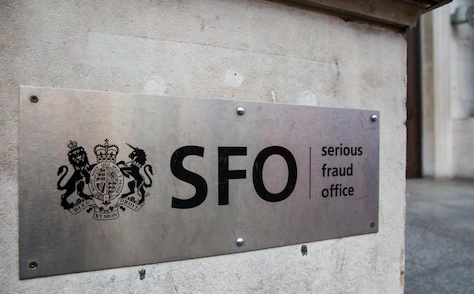Last week’s announcement by the UK Serious Fraud Office (SFO) that it is investigating suspected bribery at international commodity and mining giant Glencore Ltd and its associates has elated anti-corruption campaigners. Today, on International Anti-Corruption Day, is a moment to welcome this bold move by the SFO which follows concerns expressed for years by civil society groups about Glencore’s conduct in the Democratic Republic of Congo. But it also raised questions about why the long-running SFO criminal investigation into previously London-listed Kazakh multinational, Eurasian Natural Resources Corporation (ENRC, now called ERG) has yet to reach a conclusion.
The Glencore investigation by the SFO invigorates the UK’s commitment to fighting overseas corruption, which has faced recent criticism. In this investigation the SFO will investigate a company listed on the London Stock Exchange (LSE), but which is not UK registered. Glencore is registered in Jersey, managed out of Switzerland and listed on the LSE. The UK Anti-bribery Act of 2010 extends jurisdiction to companies with a business nexus in the UK. The Glencore investigation will be the first time the SFO is applying the business nexus.
The SFO probe into Glencore increases scrutiny on the multinational. In July 2018 the US Department of Justice issued Glencore with a subpoena about compliance with US anti-corruption laws in Congo, Nigeria and Venezuela. In April 2019, Glencore announced another investigation into possible corrupt practices in connection with commodities by the US Commodity Futures Trading Commission (CFTC). Glencore is also being investigated by the US and Brazilian authorities over possible corruption in the Car Wash scandal. In December 2018 Canadian regulators fined a Glencore subsidiary, Katanga Mining Ltd, for misstating production figures and hiding from investors the risks of doing business with Dan Gertler, a notorious Israeli businessman with close links to then Congolese President Joseph Kabila.
In December 2017 Gertler and his companies were placed under US sanctions after he was identified as a corrupt actor “who has amassed his fortune through hundreds of millions of dollars’ worth of opaque and corrupt mining and oil deals.” According to US officials, Gertler used his close friendship with Kabila to “act as a middleman for mining asset sales in the DRC, requiring some multinational companies to go through Gertler to do business with the Congolese state”. In June 2018, US authorities added a further 14 Gertler related entities to its list. Glencore is still paying Gertler’s companies royalties from both its copper and cobalt concession in Congo.
The opening of a new investigation by the SFO also raises questions about why there is still no conclusion to one of the SFO’s longest running investigations, that of ENRC, which is “focused on allegations of fraud, bribery and corruption around the acquisition of substantial mineral assets.” According to press reports, the SFO investigation is linked to mining deals in Congo.
The ENRC investigation was opened almost seven years ago, in April 2013, but neither the company nor its officials have yet faced any charges. The only person charged to date by the SFO is Anna Machkevitch, the daughter of Alexander Machkevitch, one of the owners of ENRC, for failing to hand over documents relevant to the investigation. ENRC denies the allegations and has in turn sued the SFO, though it recently failed in its attempt to force an examination into the SFO’s handling of the case.
RAID has been reporting on ENRC’s activity in Congo for years and exposed its questionable murky mining transactions with Gertler. RAID has also identified the Congolese victims of corruption at one of the mining projects under scrutiny. Will the SFO seek to recognise the harm they suffered if the ENRC case proceeds?
With the opening of a new SFO investigation into Glencore, it is surely time for SFO officials to move the ENRC investigation to a conclusion. Bribery and corruption investigations are, of course, complex but they should not drag on indefinitely. Aggressive legal tactics by companies targeted by SFO probes should not delay or subvert action by SFO officials. If it did, it runs the risk that such strategies will be employed by others in the future.
Hopefully we won’t be waiting long for the SFO’s next move in the ENRC case.

